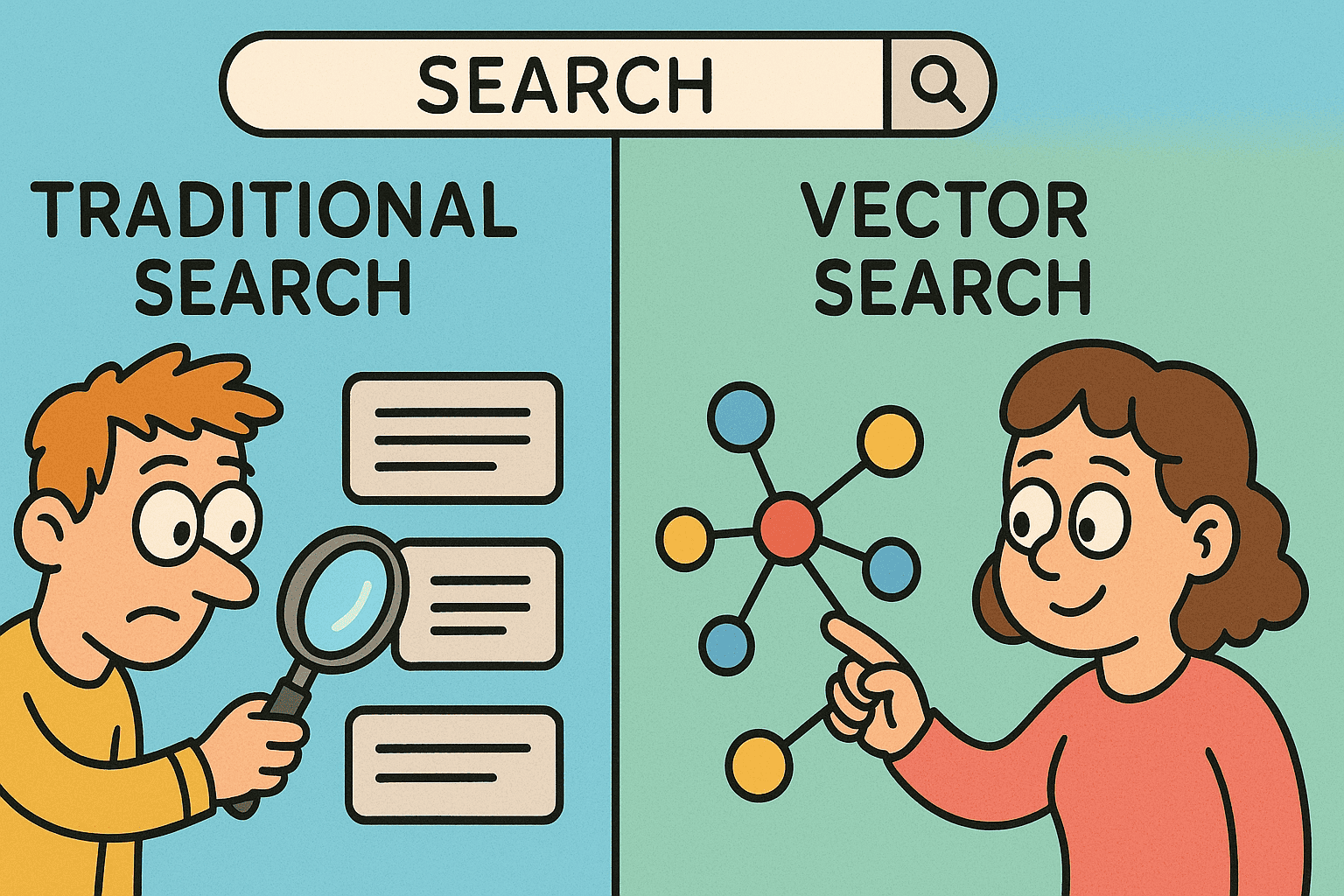
"The popularity of vector search has surged in recent years, primarily driven by the rise of AI. The technology behind vector search is quite complex, but implementing vector search is not that difficult. In principle, any experienced developer can get started with vector search. Before you start using vector search, the most important question is: When do you need vector search, and when is it better than your current traditional search technology?"
"Vector search uses specialized language models (not the large LLMs such as ChatGPT, but targeted embedding models) to convert text into numerical representations, known as vectors, which capture the meaning of the text. This enables search engines to make connections between different terminologies. If you search for "car," the system can also find documents that mention "vehicle" or "motor vehicle," even if those exact terms do not appear."
Vector search differs fundamentally from traditional keyword-based retrieval by focusing on the meaning of words and phrases rather than literal terms. Specialized embedding models convert text into numerical vectors that capture semantics and enable discovery of related content across different terminologies. Vector embeddings allow systems to surface documents mentioning 'vehicle' when a user searches for 'car' and to index non-text media such as images by producing comparable vector representations. Implementing vector search is accessible to experienced developers, but it remains technically complex. Vector search complements traditional search and presently is unlikely to entirely replace keyword-based methods for many use cases.
Read at Techzine Global
Unable to calculate read time
Collection
[
|
...
]